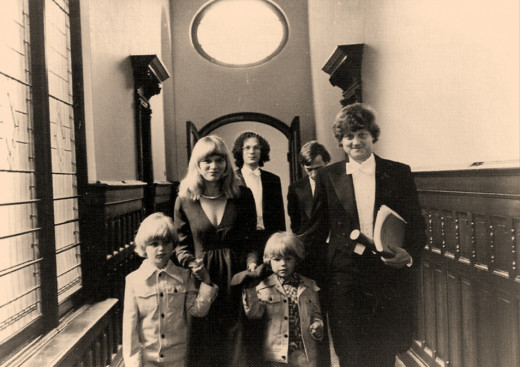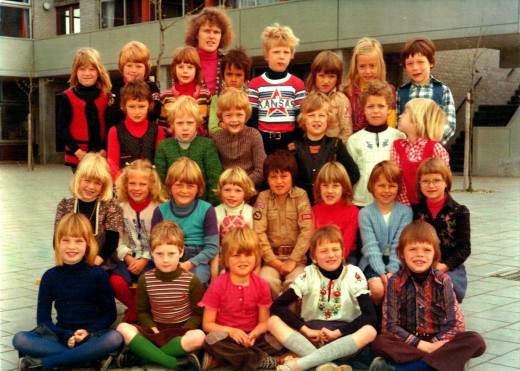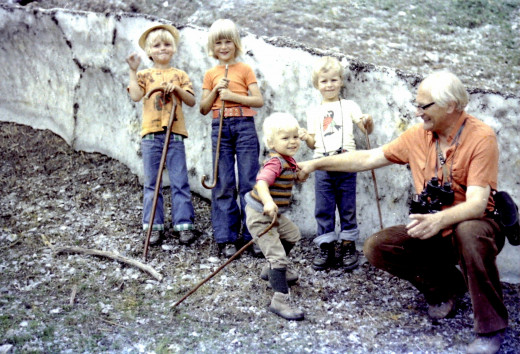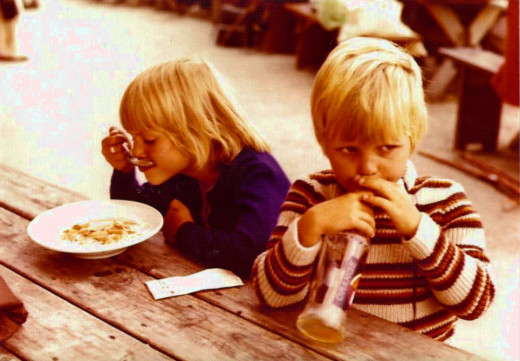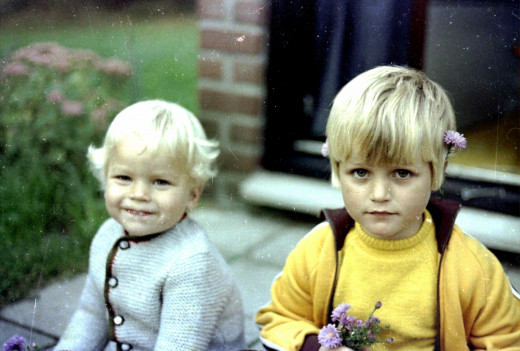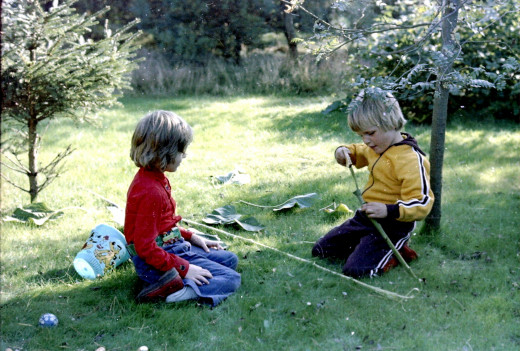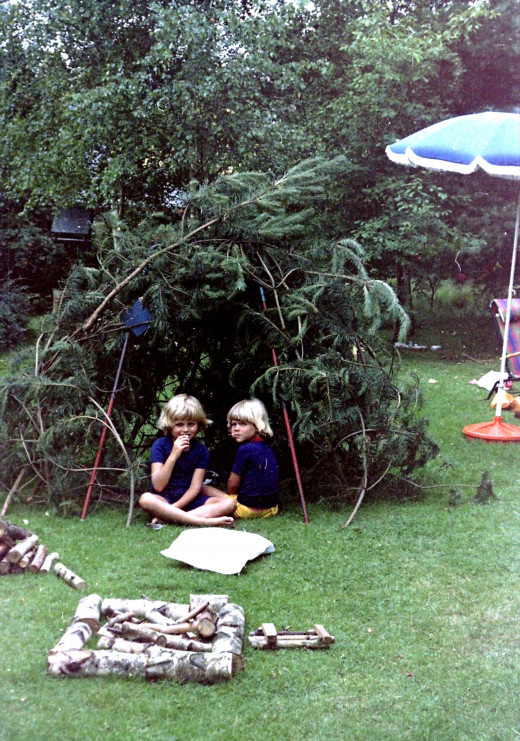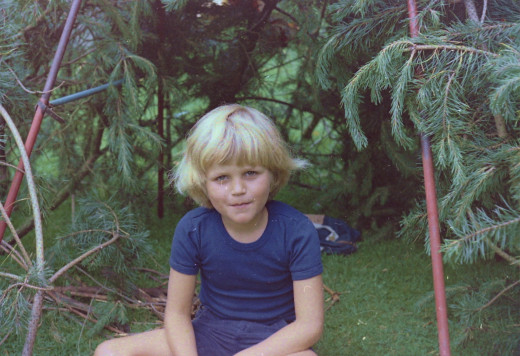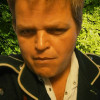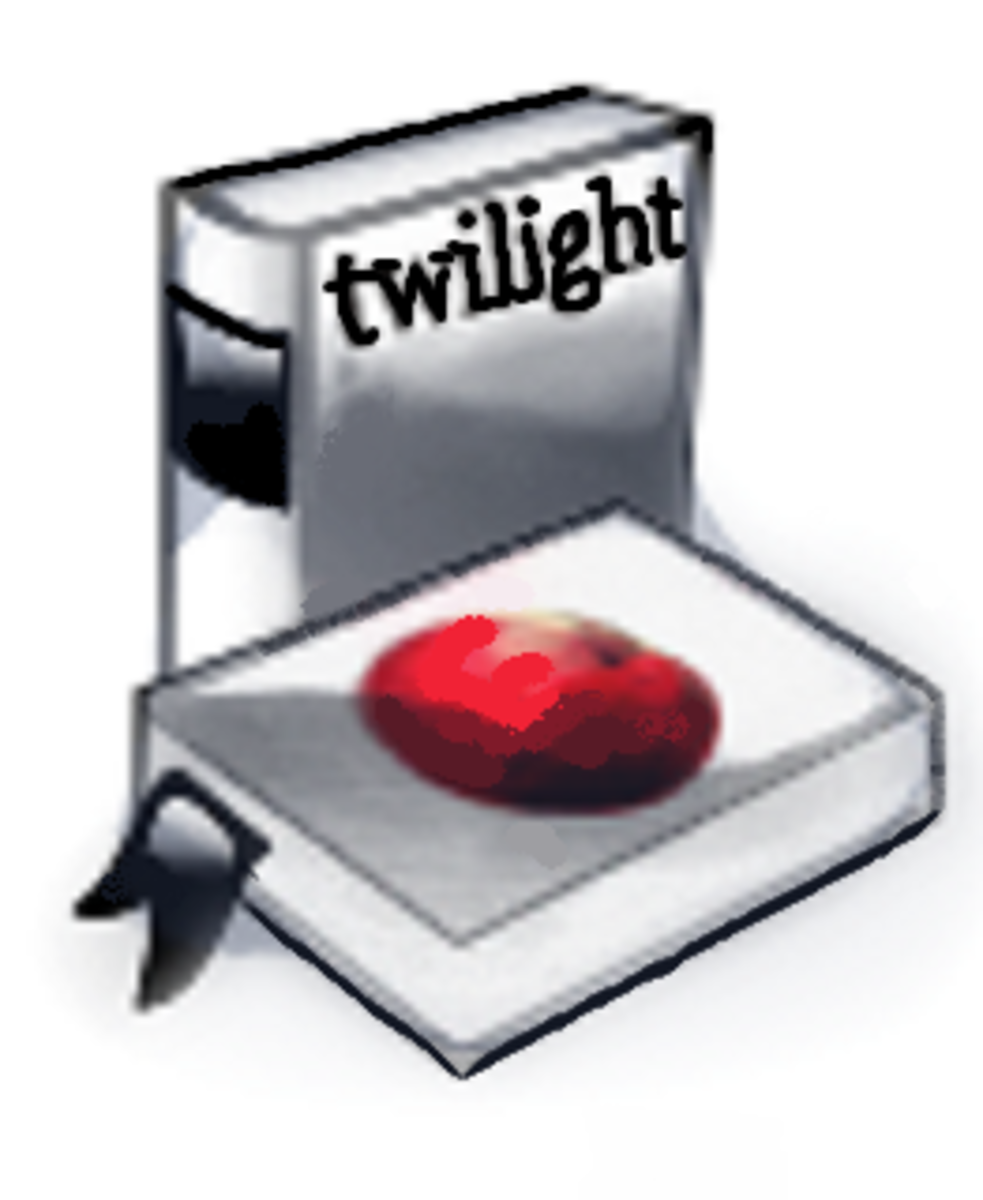- HubPages»
- Books, Literature, and Writing»
- Books & Novels»
- Books for Teens & Young Adults
Author Bio Bits 2: A Young Outsider (1976-1979)
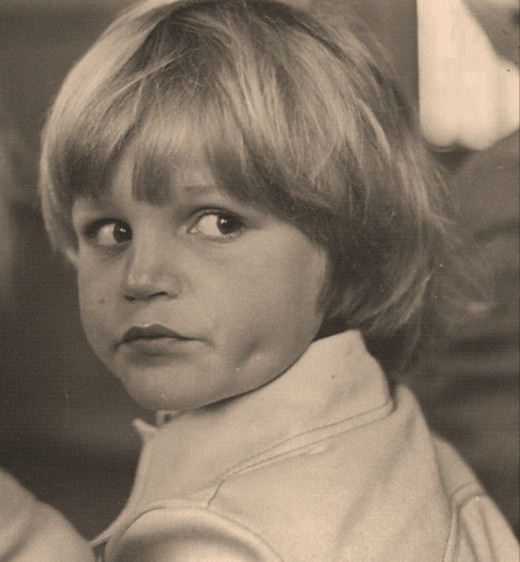
My first conscious encounter with the Netherlands was accompanied by a culture shock which never completely dissipated into complete integration. Some of this was rather amusing. To celebrate our safe homecoming, for example, my grandmother Dien had made a traditional Dutch meal consisting of meatballs, boiled potatoes and boiled cauliflower. Having been reared on spicy egg-fried rice I didn’t even know this stuff was edible and it was terribly bland. Most of all it was simply too much for a digestive system used to much lighter fare and I was unable to finish it. Other than this my mother still grins when she recalls that my lil bro and I had to be toilet trained because we assumed it was fine to take a dump in public parks and it took some time for us to get this out of our system.
There was a far darker side to it as well though. Dutch society is one in which ‘normalcy’ is a primary value. Compare Dutch houses to those of neighbouring countries such as Germany, France, Belgium and England and it is immediately noticeable the Dutch have large windows facing the street and rarely draw their curtains shut. This is so that everybody walking by in the evenings can see the family being ‘normal’ (i.e. watching television); nothing to hide is the implicit message. This value has crept into the language as well with idioms such as: ‘Doe maar normaal, dan doe je gek genoeg’ (behave normally, it’s distinctive enough as it is) and ‘je hoofd boven het maisveld uitsteken’ which suggests that it is extremely unwise to profile yourself as different (for better or worse) in any possible way. The latter refers to a rather sinister form of social control; the average Dutchman will go to great lengths to ‘correct’ deviation from the norm and it is this which I still battle with to this very day.
Imagine then the suburban sprawl of Nieuwegein, just south of the city of Utrecht, where all the houses look exactly the same and everybody tries to behave according to the norm. Then insert an over-excitable little Nisse who is still under the impression that he is Thai and will happily drop his trousers to take a crap in a neatly maintained public park and prefers to squat on the ground rather than sitting on a chair.
I was what the Thai called kah nok chao boa nok nai; one whose acts defy order or tradition. My mother was called into school frequently to justify my existence for I confounded my teachers on a structural basis. I was so used to switching from one language to the next that I often didn’t realise that I was suddenly chattering in Thai or my own form of pidgin English. The teachers were very offended that I already knew how to read; my mom should have left this up to the ‘professionals’ but I wasn’t very impressed by the abilities of these professionals. I am left with very vivid memories of reading classes; four pupils having to share a book and I would have read the same two pages six or seven times while the others were still struggling to complete the first page. Apparently it was rude to inquire if my classmates were morons to boot; better to keep those thoughts to oneself. The next complaint was that I kept on talking about Thailand; it would be better, my teachers suggested, if I tried to forget about that part of my life and assimilated into an acceptable degree of ‘normalcy’.
To this day I am still hesitant about talking of growing up all over the world with Dutchmen, I feel far more comfortable with people who either have an international background or who hail from countries which have a far less introspective provincial outlook. An inevitable clash is that most Dutchmen sincerely believe that their country is the only one worth living in, for example, and they really don’t appreciate comparisons which might introduce doubts with regard to their ‘super-country’. A great deal of this national smugness, by the way, is based on the argument that things are ‘normal’ over here; as soon as you cross into Belgium, for example, things become less ‘normal’ and therefore bad. When Dutchmen speak of their experience travelling abroad this often involves listing all the things that are not ‘normal’ in a disapproving manner; the further they went the longer these lists become.
I got into fights at school. There were some Vietnamese refugees living in Nieuwegein and they often walked past school. If we were out playing they would be called names comparable to ‘chink’, ‘gook’ and ‘slant-eye’. They were different you see. I would take offense; I considered myself to be partly Asian and would attempt to correct my classmates by punching them. My teachers were puzzled by this behaviour.
“They were calling them insulting names,” I would justify my actions.
“Yes, but you are white,” they would say, not understanding at all why the name-calling evoked anger in me. I was expected to pick a ‘natural’ side based on my skin colour; not stand up for foreigners who –as everybody knew- were not very normal at all.
If I give the impression that I was having a terrible time of it then I must apologize. These were just seeds that were sown which would become a staple of later sojourns in the Netherlands. On the whole, I was having a great amount of fun. Nieuwegein was ever expanding, new neighbourhoods being added all the time. When the builders went home at four o’clock we had our own private Stalingrad to play in; a landscape of partially completed houses which were littered with fun lengths of steel rods and bits of wood with nails sticking out of them. Scores of us would descend upon this battlefield after school and happily try to bash each other’s brains in with the arsenal so kindly left by the builders. They tried to discourage us at school by warning us that ‘kinderlokkers’ (paedophiles) wandered about the building sites in the afternoons offering free sweets. Such warnings usually doubled our numbers and unified our various tribes and a good 60 to 70 kids would prowl the building sites –armed to the teeth- looking for these predators. We had no idea what they looked like. Any stray adult would have been fair game in our private kingdom with the added benefit that society was so disapproving of their deviance from the norm that it would be just fine to beat them to death and then steal their hoard of sweets. I suppose we were very lucky that no adults ever ventured into our hunting grounds because we would have probably happily murdered them and then be profoundly disappointed they didn’t carry bags full of sweets.
My grandparents had a small bungalow in the east of the Netherlands, in a woods near a small town called Ommen. They would drive there from Rotterdam almost every weekend and pick me up on the way. Ommen became the most stable childhood location for me. My family might have moved around a lot (we moved from Nieuwegein to Zoeterwoude in the late seventies) but Ommen was always there. My grandparents had nine grandchildren and this little tribe would join with the local farm kids and kids from other bungalows to have grand adventures in the woods. We knew the woods by heart and supplied our own names. “Go left after the Grand Woodpecker’s Tree, cross the Snake-Field, traverse the Hazel Maze and find us at the Water-Fort” made perfect sense to us. Having lived through the war my grandparents were not too keen on wargames so out of respect we used our forts, huts and tunnels to store our arsenal of sticks which looked like pistols and rifles as well as our home-made bows, arrows and spears. Sometimes we would unify to fight dragons and werewolves; at other times the tribes would take on each other, happily trying to bash each other’s brains in. The rule, just like it was in Nieuwegein-Stalingrad, was that you never went running to your mummy bawling about an arrow protruding from one of your eyes. It was a rare occurrence to come home without scrapes, bruises or cuts which we explained away with sincere descriptions of an unfortunate fall after stumbling over exposed roots or whatnot. That was far more acceptable to adults than explaining that you were up in a tree and fell down ten feet after the neighbour’s kid bashed you on the head with something resembling a caveman’s club.
My grandparents also took all the grandkids on summer holidays to the Austrian Alps where the mountainous terrain and many brooks and streams added greatly to our adventures in the woods. We would build dams in the streams and then break them to see if we could cause a flood. I will never forget the sight of a huge boulder dislodged thus rolling towards my lil bro and stopping about three inches from him; meaning I came very close to murdering him properly by crushing every bone in his body.
In short: Much of 1976-1979 was me enjoying a good old fashioned childhood and at least learning to pretend to be a little bit ‘normal’. Then, early in 1980, we were told that my dad had landed a job in Kathmandu, Nepal. We were going back home to Asia.
